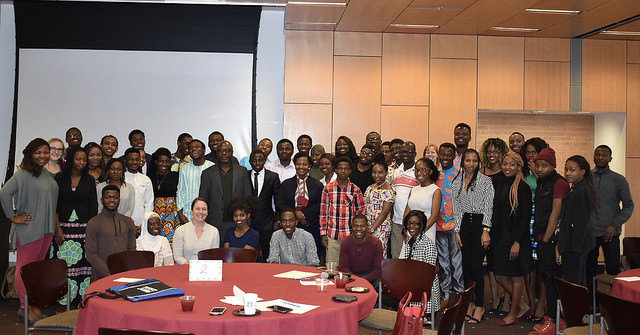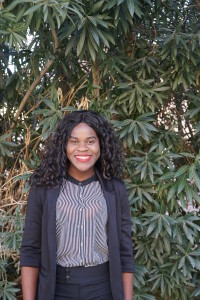
Building Uganda’s Culture of Reproductive and Sexual Health
International Women's Day 2018
International Women’s Day 2018
In celebration of International Women’s Day and the African Women’s Leadership Conference at Wellesley College, Scholars explain how gender has shaped their leadership journeys. Leah Nakaima studies Public Health and Public Policy. She is a Scholar in the Program at Arizona State University.
Growing up in Jinja, Uganda, I witnessed one of the highest rates of poor reproductive and sexual health, specifically among adolescents. I saw first-hand young girls dropping out of school due to early pregnancies. As a result, most of these girls were abandoned by their families and the community at large. For the stigma that came with this, they often found themselves experiencing mental health issues. Being a potential victim, I was in no position to help my classmates, neighbors, and girls in my community.
One of the requirements with the Mastercard Foundation was for me to return to my country after graduation and serve the vulnerable people there. For graduation couldn’t wait, I have in the past 2 years, served adolescents. In 2016, I started working on creating a new organization, “The Pennet Enterprises” in Jinja, Uganda. The organization supports 20 pregnancy-related high school dropout youths by employing them in a sewing company to enable them to pay their tuition, as well as reproductive health education. It also provides uniforms for two famous schools, supporting over 15 primary school girls with tuition using the profits.
Aside from Pennet Enterprises, I have educated 85 youths, 18 years and older about sexually transmitted diseases, their prevention, and control measures while I volunteered at Reproductive Health Uganda in the summer of 2016. I also educated 52 women about abortion and fistula and encouraged the use of contraceptives as birth control measures. By doing this, I hope the culture of reproductive health education continues to future generations.
The main reason for dropping out of school was lack of school fees and early pregnancies among young girls. This is what drives my passion for alleviating the number of school dropouts in Uganda and financially supporting dropouts to discover their dreams. I believe education for reproductive health is global and the African Women’s Leadership Conference will grant me a chance to get involved in dialogues about African women leadership, which will enrich me with more ideas on how to navigate my passion for helping my fellow female youth — not only in Uganda, but also internationally.
Meet Leah Nakaima

Leah Nakaima, Mastercard Foundation Scholar at Arizona State University
Leah’s story is part of a series for International Women’s Day that is highlighting stories from Mastercard Foundation Scholars about how gender has shaped their leadership journeys. Continue reading more posts in the series here.


